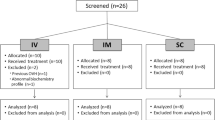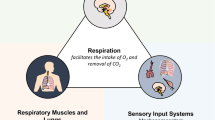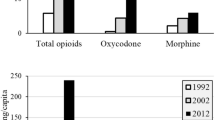Abstract
Pruritus occurs frequently following opioid use, particularly after neuraxial administration. Although not life threatening, pruritus is discomforting and may decrease patient satisfaction. Even though the mechanism of opioid-induced pruritus is not yet fully understood, there is increasing evidence of the important role played by μ opioid receptors. Animal experiments pointing to the role of the μ opioid receptor and the efficacy of μ opioid receptor antagonists for opioid adverse effect prophylaxis and treatment have been replicated in several studies. Serotonin and dopamine D2 receptors, prostaglandins and spinal inhibitory pathways may also be involved in the genesis of pruritus.
Several pharmacological agents have been used both for the treatment of established pruritus and in its prevention. Of these, μ opioid receptor antagonists have been most consistent in terms of attenuating opioid-induced pruritus but present problems in dose and administration. Other drugs, including mixed opioid receptor agonist-antagonists, serotonin 5-HT3 receptor antagonists, propofol, NSAIDs and D2 receptor antagonists, have also been demonstrated to be useful.
This review summarises the current understanding of the mechanisms causing opioid-induced pruritus and the pharmacological therapies available to prevent and/or manage this disorder.



Similar content being viewed by others
References
Scott PV, Fischer HB. Intraspinal opiates and itching: a new reflex? BMJ (Clin Res Ed) 1982; 284: 1015–6
Abboud TK, Afrasiabi A, Davidson J, et al. Prophylactic oral naltrexone with epidural morphine: effect on adverse reactions and ventilatory responses to carbon dioxide. Anesthesiology 1990; 72: 233–7
Kam PC, Tan KH. Pruritus: itching for a cause and relief? Anaesthesia 1996; 51: 1133–8
Szarvas S, Harmon D, Murphy D. Neuraxial opioid-induced pruritus: a review. J Clin Anesth 2003; 15: 234–9
Gan TJ, Ginsberg B, Glass PS, et al. Opioid-sparing effects of a low-dose infusion of naloxone in patient-administered morphine sulfate. Anesthesiology 1997; 87: 1075–81
Woodhouse A, Hobbes AF, Mather LE, et al. A comparison of morphine, pethidine and fentanyl in the postsurgical patient-controlled analgesia environment. Pain 1996; 64: 115–21
Horta ML, Ramos L, Goncalves ZR. The inhibition of epidural morphine-induced pruritus by epidural droperidol. Anesth Analg 2000; 90: 638–41
Scott PV, Fischer HB. Spinal opiate analgesia and facial pruritus: a neural theory. Postgrad Med J 1982; 58: 531–5
Yeh HM, Chen LK, Lin CJ, et al. Prophylactic intravenous ondansetron reduces the incidence of intrathecal morphine-induced pruritus in patients undergoing cesarean delivery. Anesth Analg 2000; 91: 172–5
Ikoma A, Steinhoff M, Stander S, et al. The neurobiology of itch. Nat Rev Neurosci 2006; 7: 535–47
Paus R, Schmelz M, Biro T, et al. Frontiers in pruritus research: scratching the brain for more effective itch therapy. J Clin Invest 2006; 116: 1174–86
Schmelz M, Schmidt R, Bickel A, et al. Specific C-receptors for itch in human skin. J Neurosci 1997; 17: 8003–8
Kjellberg F, Tramer MR. Pharmacological control of opioid-induced pruritus: a quantitative systematic review of randomized trials. Eur J Anaesthesiol 2001; 18: 346–57
Bates JJ, Foss JF, Murphy DB. Are peripheral opioid antagonists the solution to opioid side effects? Anesth Analg 2004; 98: 116–22
Bigliardi-Qi M, Gaveriaux-Ruff C, Pfaltz K, et al. Deletion of mu- and kappa-opioid receptors in mice changes epidermal hypertrophy, density of peripheral nerve endings, and itch behavior. J Invest Dermatol 2007; 127: 1479–88
Ko MC, Song MS, Edwards T, et al. The role of central mu opioid receptors in opioid-induced itch in primates. J Pharmacol Exp Ther 2004; 310: 169–76
Kuraishi Y, Yamaguchi T, Miyamoto T. Itch-scratch responses induced by opioids through central mu opioid receptors in mice. J Biomed Sci 2000; 7: 248–52
Cepeda MS, Alvarez H, Morales O, et al. Addition of ultralow dose naloxone to postoperative morphine PCA: unchanged analgesia and opioid requirement but decreased incidence of opioid side effects. Pain 2004; 107: 41–6
Charuluxananan S, Kyokong O, Somboonviboon W, et al. Nalbuphine versus ondansetron for prevention of intrathecal morphine-induced pruritus after cesarean delivery. Anesth Analg 2003; 96: 1789–93
Gunter JB, McAuliffe J, Gregg T, et al. Continuous epidural butorphanol relieves pruritus associated with epidural morphine infusions in children. Paediatr Anaesth 2000; 10: 167–72
Jeon Y, Hwang J, Kang J, et al. Effects of epidural naloxone on pruritus induced by epidural morphine: a randomized controlled trial. Int J Obstet Anesth 2005; 14: 22–5
Maxwell LG, Kaufmann SC, Bitzer S, et al. The effects of a small-dose naloxone infusion on opioid-induced side effects and analgesia in children and adolescents treated with intravenous patient-controlled analgesia: a double-blind, prospective, randomized, controlled study. Anesth Analg 2005; 100: 953–8
Okutomi T, Saito M, Mochizuki J, et al. Prophylactic epidural naloxone reduces the incidence and severity of neuraxial fentanyl-induced pruritus during labour analgesia in primiparous parturients. Can J Anaesth 2003; 50: 961–2
Thomas DA, Williams GM, Iwata K, et al. The medullary dorsal horn: a site of action of morphine in producing facial scratching in monkeys. Anesthesiology 1993; 79: 548–54
Chaney MA. Side effects of intrathecal and epidural opioids. Can J Anaesth 1995; 42: 891–903
Asokumar B, Newman LM, McCarthy RJ, et al. Intrathecal bupivacaine reduces pruritus and prolongs duration of fentanyl analgesia during labor: a prospective, randomized controlled trial. Anesth Analg 1998; 87: 1309–15
Ballantyne JC, Loach AB, Carr DB. The incidence of pruritus after epidural morphine [letter]. Anaesthesia 1989; 44: 863
Horta ML, Morejon LC, da Cruz AW, et al. Study of the prophylactic effect of droperidol, alizapride, propofol and promethazine on spinal morphine-induced pruritus. Br J Anaesth 2006; 96: 796–800
Horta ML, Vianna PT. Effect of intravenous alizapride on spinal morphine-induced pruritus. Br J Anaesth 2003; 91: 287–9
Borgeat A, Stirnemann HR. Ondansetron is effective to treat spinal or epidural morphine-induced pruritus. Anesthesiology 1999; 90: 432–6
Charuluxananan S, Somboonviboon W, Kyokong O, et al. Ondansetron for treatment of intrathecal morphine-induced pruritus after cesarean delivery. Reg Anesth Pain Med 2000; 25: 535–9
Iatrou CA, Dragoumanis CK, Vogiatzaki TD, et al. Prophylactic intravenous ondansetron and dolasetron in intrathecal morphine-induced pruritus: a randomized, double-blinded, placebo-controlled study. Anesth Analg 2005; 101: 1516–20
Colbert S, O’Hanlon DM, Chambers F, et al. The effect of intravenous tenoxicam on pruritus in patients receiving epidural fentanyl. Anaesthesia 1999; 54: 76–80
Colbert S, O’Hanlon DM, Galvin S, et al. The effect of rectal diclofenac on pruritus in patients receiving intrathecal morphine. Anaesthesia 1999; 54: 948–52
Lee LH, Irwin MG, Lim J, et al. The effect of celecoxib on intrathecal morphine-induced pruritus in patients undergoing caesarean section. Anaesthesia 2004; 59: 876–80
Romsing J, Moiniche S, Mathiesen O, et al. Reduction of opioid-related adverse events using opioid-sparing analgesia with COX-2 inhibitors lacks documentation: a systematic review. Acta Anaesthesiol Scand 2005; 49: 133–42
Marret E, Kurdi O, Zufferey P, et al. Effects of nonsteroidal antiinflammatory drugs on patient-controlled analgesia morphine side effects: meta-analysis of randomized controlled trials. Anesthesiology 2005; 102: 1249–60
Hermens JM, Ebertz JM, Hanifin JM, et al. Comparison of histamine release in human skin mast cells induced by morphine, fentanyl, and oxymorphone. Anesthesiology 1985; 62: 124–9
Kyriakides K, Hussain SK, Hobbs GJ. Management of opioid-induced pruritus: a role for 5-HT3 antagonists? Br J Anaesth 1999; 82: 439–41
Waxler B, Dadabhoy ZP, Stojiljkovic L, et al. Primer of postoperative pruritus for anesthesiologists. Anesthesiology 2005; 103: 168–78
Krajnik M, Zylicz Z. Understanding pruritus in systemic disease. J Pain Symptom Manage 2001; 21: 151–68
Yaksh TL, Harty GJ, Onofrio BM. High dose of spinal morphine produce a nonopiate receptor-mediated hyperesthesia: clinical and theoretic implications. Anesthesiology 1986; 64: 590–7
Macario A, Weinger M, Truong P, et al. Which clinical anesthesia outcomes are both common and important to avoid? The perspective of a panel of expert anesthesiologists. Anesth Analg 1999; 88: 1085–91
Borgeat A, Wilder-Smith OH, Saiah M, et al. Subhypnotic doses of propofol relieve pruritus induced by epidural and intrathecal morphine. Anesthesiology 1992; 76: 510–2
Naganuma R, Tsuchida H, Okanuma M, et al. The efficacy of low-dose propofol for intrathecal morphine-induced pruritus [in Japanese]. Masui 1998; 47: 562–5
Charuluxananan S, Kyokong O, Somboonviboon W, et al. Nalbuphine versus propofol for treatment of intrathecal morphine-induced pruritus after cesarean delivery. Anesth Analg 2001; 93: 162–5
Beilin Y, Bernstein HH, Zucker-Pinchoff B, et al. Subhypnotic doses of propofol do not relieve pruritus induced by intrathecal morphine after cesarean section. Anesth Analg 1998; 86: 310–3
Warwick JP, Kearns CF, Scott WE. The effect of subhypnotic doses of propofol on the incidence of pruritus after intrathecal morphine for caesarean section. Anaesthesia 1997; 52: 270–5
Somrat C, Oranuch K, Ketchada U, et al. Optimal dose of nalbuphine for treatment of intrathecal-morphine induced pruritus after caesarean section. J Obstet Gynaecol Res 1999; 25: 209–13
Cohen SE, Ratner EF, Kreitzman TR, et al. Nalbuphine is better than naloxone for treatment of side effects after epidural morphine. Anesth Analg 1992; 75: 747–52
Alhashemi JA, Crosby ET, Grodecki W, et al. Treatment of intrathecal morphine-induced pruritus following caesarean section. Can J Anaesth 1997; 44: 1060–5
Henderson SK, Cohen H. Nalbuphine augmentation of analgesia and reversal of side effects following epidural hydromorphone. Anesthesiology 1986; 65: 216–8
Penning JP, Samson B, Baxter AD. Reversal of epidural morphine-induced respiratory depression and pruritus with nalbuphine. Can J Anaesth 1988; 35: 599–604
Nakatsuka N, Minogue SC, Lim J, et al. Intravenous nalbuphine 50 microg x kg(−1) is ineffective for opioid-induced pruritus in pediatrics. Can J Anaesth 2006; 53: 1103–10
Arai L, Stayer S, Schwartz R, et al. The use of ondansetron to treat pruritus associated with intrathecal morphine in two paediatric patients. Paediatr Anaesth 1996; 6: 337–9
Henry A, Tetzlaff JE, Steckner K. Ondansetron is effective in treatment of pruritus after intrathecal fentanyl. Reg Anesth Pain Med 2002; 27: 538–40
Larijani GE, Goldberg ME, Rogers KH. Treatment of opioid-induced pruritus with ondansetron: report of four patients. Pharmacotherapy 1996; 16: 958–60
Mercadante S, Villari P, Fulfaro F. Rifampicin in opioid-induced itching. Support Care Cancer 2001; 9: 467–8
McGrath PA, Seifert CE, Speechley KN, et al. A new analogue scale for assessing children’s pain: an initial validation study. Pain 1996; 64(3): 435–43
Gregorio GV, Ball CS, Mowat AP, et al. Effect of rifampicin in the treatment of pruritus in hepatic cholestasis. Arch Dis Child 1993; 69: 141–3
Wang JJ, Ho ST, Tzeng JI. Comparison of intravenous nalbuphine infusion versus naloxone in the prevention of epidural morphine-related side effects. Reg Anesth Pain Med 1998; 23: 479–84
Cepeda MS, Africano JM, Manrique AM, et al. The combination of low dose of naloxone and morphine in PCA does not decrease opioid requirements in the postoperative period. Pain 2002; 96: 73–9
Sartain JB, Barry JJ, Richardson CA, et al. Effect of combining naloxone and morphine for intravenous patient-controlled analgesia. Anesthesiology 2003; 99: 148–51
Joshi GP, Duffy L, Chehade J, et al. Effects of prophylactic nalmefene on the incidence of morphine-related side effects in patients receiving intravenous patient-controlled analgesia. Anesthesiology 1999; 90: 1007–11
Connelly NR, Rahimi A, Parker RK. Nalmefene or naloxone for preventing intrathecal opioid mediated side effects in cesarean delivery patients. Int J Obstet Anesth 1997; 6: 231–4
Pellegrini JE, Bailey SL, Graves J, et al. The impact of nalmefene on side effects due to intrathecal morphine at cesarean section. AANA J 2001; 69: 199–205
Ben-David B, DeMeo PJ, Lucyk C, et al. Minidose lidocaine-fentanyl spinal anesthesia in ambulatory surgery: prophylactic nalbuphine versus nalbuphine plus droperidol. Anesth Analg 2002; 95: 1596–600
Kendrick WD, Woods AM, Daly MY, et al. Naloxone versus nalbuphine infusion for prophylaxis of epidural morphine-induced pruritus. Anesth Analg 1996; 82: 641–7
Morgan PJ, Mehta S, Kapala DM. Nalbuphine pretreatment in cesarean section patients receiving epidural morphine. Reg Anesth 1991; 16: 84–8
Bailey AG, Valley RD, Freid EB, et al. Epidural morphine combined with epidural or intravenous butorphanol for postoperative analgesia in pediatric patients. Anesth Analg 1994; 79: 340–4
Lawhorn CD, Brown Jr RE. Epidural morphine with butorphanol in pediatric patients. J Clin Anesth 1994; 6: 91–4
Lawhorn CD, McNitt JD, Fibuch EE, et al. Epidural morphine with butorphanol for postoperative analgesia after cesarean delivery. Anesth Analg 1991; 72: 53–7
Abboud TK, Moore M, Zhu J, et al. Epidural butorphanol or morphine for the relief of post-cesarean section pain: ventilatory responses to carbon dioxide. Anesth Analg 1987; 66: 887–93
Gurkan Y, Toker K. Prophylactic ondansetron reduces the incidence of intrathecal fentanyl-induced pruritus. Anesth Analg 2002; 95: 1763–6
Pirat A, Tuncay SF, Torgay A, et al. Ondansetron, orally disintegrating tablets versus intravenous injection for prevention of intrathecal morphine-induced nausea, vomiting, and pruritus in young males. Anesth Analg 2005; 101: 1330–6
Tzeng JI, Chu KS, Ho ST, et al. Prophylactic iv ondansetron reduces nausea, vomiting and pruritus following epidural morphine for postoperative pain control. Can J Anaesth 2003; 50: 1023–6
Korhonen AM, Valanne JV, Jokela RM, et al. Ondansetron does not prevent pruritus induced by low-dose intrathecal fentanyl. Acta Anaesthesiol Scand 2003; 47: 1292–7
Sarvela PJ, Halonen PM, Soikkeli AI, et al. Ondansetron and tropisetron do not prevent intraspinal morphine- and fentanyl-induced pruritus in elective cesarean delivery. Acta Anaesthesiol Scand 2006; 50: 239–44
Wells J, Paech MJ, Evans SF. Intrathecal fentanyl-induced pruritus during labour: the effect of prophylactic ondansetron. Int J Obstet Anesth 2004; 13: 35–9
Yazigi A, Chalhoub V, Madi-Jebara S, et al. Prophylactic ondansetron is effective in the treatment of nausea and vomiting but not on pruritus after cesarean delivery with intrathecal sufentanil-morphine. J Clin Anesth 2002; 14: 183–6
Horta ML, Ramos L, Goncalves ZR, et al. Inhibition of epidural morphine-induced pruritus by intravenous droperidol: the effect of increasing the doses of morphine and of droperidol. Reg Anesth 1996; 21: 312–7
Torn K, Tuominen M, Tarkkila P, et al. Effects of sub-hypnotic doses of propofol on the side effects of intrathecal morphine. Br J Anaesth 1994; 73: 411–2
Saiah M, Borgeat A, Wilder-Smith OH, et al. Epidural-morphine-induced pruritus: propofol versus naloxone. Anesth Analg 1994; 78: 1110–3
Kostopanagiotou G, Pandazi A, Matiatou S, et al. The impact of intraoperative propofol administration in the prevention of postoperative pruritus induced by epidural morphine. Eur J Anaesthesiol 2006; 23: 418–21
Juneja MM, Ackerman 3rd WE, Bellinger K. Epidural morphine pruritus reduction with hydroxyzine in parturients. J Ky Med Assoc 1991; 89: 319–21
Etchin A, Perl A, Bider D, et al. Prevention of a side effect of epidural morphine by epidural steroid administration in cesarean section. Gynecol Obstet Invest 1990; 29: 305–6
Yaster M, Kost-Byerly S, Maxwell LG. Opioid agonists and antagonists. In: Schecter NL, Berde CB, Yaster M, editors. Pain in infants, children, and adolescents. Philidelphia (PA): Lippincott Williams and Wilkins, 2003: 181–224
Ko MC, Lee H, Song MS, et al. Activation of kappa-opioid receptors inhibits pruritus evoked by subcutaneous or intrathecal administration of morphine in monkeys. J Pharmacol Exp Ther 2003; 305: 173–9
Acknowledgements
No sources of funding were used to assist in the preparation of this article. The authors have no conflicts of interest that are directly relevant to the content of this article.
Author information
Authors and Affiliations
Corresponding author
Rights and permissions
About this article
Cite this article
Ganesh, A., Maxwell, L.G. Pathophysiology and Management of Opioid-Induced Pruritus. Drugs 67, 2323–2333 (2007). https://doi.org/10.2165/00003495-200767160-00003
Published:
Issue Date:
DOI: https://doi.org/10.2165/00003495-200767160-00003




